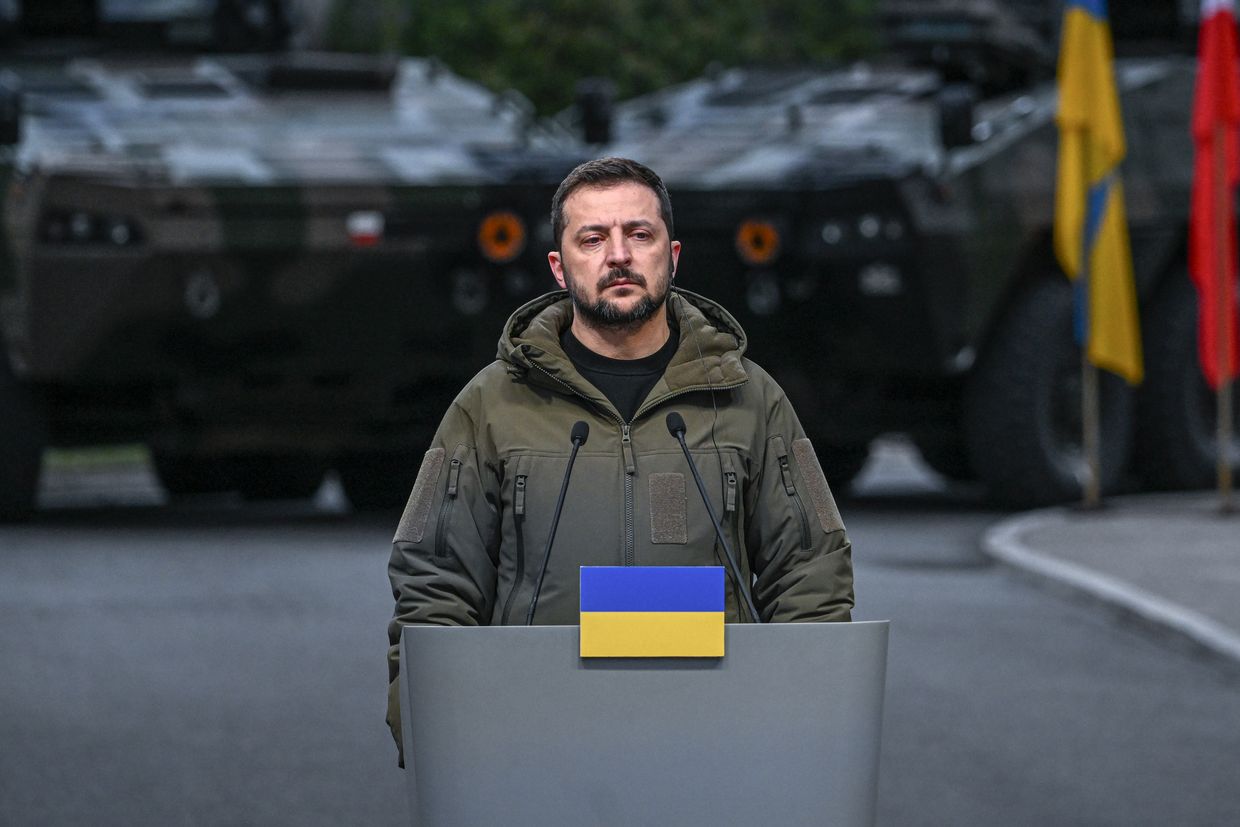Russian dictator Vladimir Putin’s latest claims about Ukraine’s government being "illegitimate" and peace talks futility can be a tactic to justify breaking any future agreements with Kyiv, the Institute for the Study of War (ISW) wrote on Jan. 29.
Zelensky's term would have expired this month, but he's staying. Russia wants to use it
Putin Says Talks With Ukraine Possible, But Not With Zelensky
Kremlin’s 'illegitimacy' claims set the stage for breaking future peace deals
Russian dictator Vladimir Putin setting the stage to violate any future agreements with Ukraine (Photo: REUTERS/Evgenia Novozhenina)
Russian dictator Vladimir Putin’s latest claims about Ukraine’s government being "illegitimate" and peace talks futility can be a tactic to justify breaking any future agreements with Kyiv, the Institute for the Study of War (ISW) wrote on Jan. 29.
In an interview with Russian propagandist Pavel Zarubin published on Jan. 28, Putin claimed that he will not consider any peace agreement with Ukraine binding as long as President Volodymyr Zelenskyy’s 2022 decree prohibiting negotiations with him remains in effect.
The Kremlin dictator further alleged that Zelenskyy could no longer legally revoke the decree, arguing that he is an “illegitimate” president. Putin falsely suggested that Ukraine’s parliament, the Verkhovna Rada, could annul the decree but is unwilling to do so.
However, ISW pointed out that Ukraine’s constitution does not grant the Verkhovna Rada the authority to cancel presidential decrees, making this move legally impossible.
Putin has repeatedly labeled Zelenskyy as illegitimate, particularly after Ukraine, following its own laws and constitution, did not hold elections in 2024 due to martial law.
Putin may also aim to declare the Verkhovna Rada "illegitimate" in the future to justify demands for a complete change of government in Kyiv and to further refuse peace talks.
The analysts' report reminded that Putin has called every Ukrainian government "illegitimate" since 2014, yet engaged in negotiations and signed agreements with Ukrainian officials, namely the Minsk agreements of 2014 and 2015.
- However, Putin later violated these agreements, using the “illegitimacy” narrative as a pretext for doing so.
Even if Zelenskyy or other Ukrainian officials were to revoke the decree prohibiting talks with Putin, ISW believes that the Russian dictator would still break any peace agreement, falsely claiming it was "invalid." This pattern will continue as long as Putin believes he can achieve his military objectives in Ukraine.
Additionally, ISW noted that Putin likely intends to use false claims about Ukraine's "illegitimacy" to portray Kyiv as the party unwilling or unable to negotiate and as the side prolonging the war.
On Jan. 25, President Zelenskyy explained that Ukraine’s National Security and Defense Council (NSDC) prohibited negotiations with Russia in October 2022 to prevent secret backroom deals and separatist activities.
Zelenskyy also said that Putin had attempted to influence Ukraine through certain lawmakers, state institutions, and European politicians.








No comments:
Post a Comment